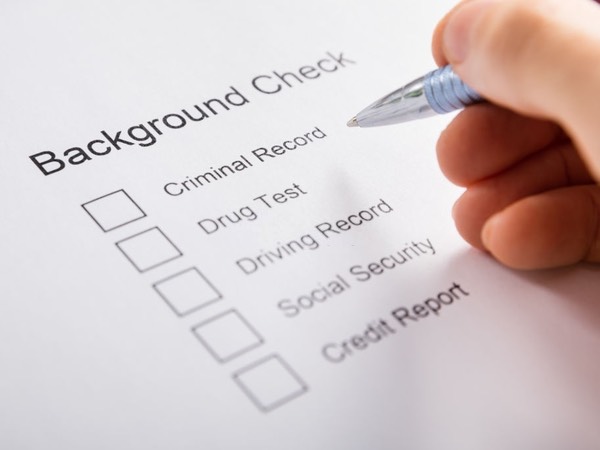With the relative ease of finding information about anyone via the internet, search engines, and social media, sleuthing around is now par for the course. But it goes deeper than that. Every institution that you plan on dealing with wants to glean your history, whether you want it or not.
Applying for a job? Planning on renting an apartment? Trying to get insurance? It’s more than likely that the companies, institutions, and even individuals you’ve come in contact with will all run a background check on you.
Simply put, information and privacy go both ways and it’s all in the name of security — you want to know more about them, and vice-versa, they want to know more about you. And mind you, these reports are comprehensive and they may include your income level, loans, debts, criminal records, and other sensitive data.
This is why it’s important that you run a background check on yourself and see what data these institutions, prospective employers, and various companies can request about you.
It’s recommended that you occasionally check your records and always make sure they’re accurate and complete. Why? Well, these background checks can drastically affect various aspects of your life.
Who’s allowed to see your background check reports?
One such report that has significant importance is the consumer report. Companies use these checks to make decisions about approving your credit application, your housing rental, insurance, and your employment, among other things.
First off, not everyone can request your credit and consumer reports. Consumer, credit, and other specialty reporting companies are still bound by legal restrictions about to whom they can release these reports.
According to the Consumer Financial Protection Bureau, these include:
- Lenders including credit card and loan companies and services that provide auto leases and student loans
- Employers, volunteer organizations, and government agencies to determine eligibility for government assistance (employment and background screening)
- Landlords and residential management companies
- Banks, credit unions, payment processors, and retail stores that accept personal checks
- Companies that market and sell products and services specifically to lower-income consumers and subprime credit applicants, like short-term lending and rent-to-own businesses among others
- Debt buyers and collectors
- Insurance companies including health, life, and property insurance screening
- Communications and utility companies (mobile phone, cable TV, electric, gas, water, internet, etc.)
- Retail stores for product return fraud and abuse screening
- Retail stores that offer financing
- Gaming casinos that extend credit to consumers and/or accept personal checks
Consumer and credit reports

As you can see, almost every company that has anything to do with your finances can request your consumer report, so it’s extremely critical that you review the accuracy of your information.
Thankfully, under the Fair Credit Reporting Act (FCRA), you have the right to know what’s actually on your consumer report, and you can dispute and correct the information that’s wrong or incomplete.
For example, you’re entitled to a free credit report every 12 months from each of the three major credit reporting companies, Equifax, Experian, and TransUnion. Note: Your best option is to space out your requests so you get a credit report every four months.
Annual Credit Report – For your convenience, the three major credit reporting companies set up the Annual Credit Report site. Just go to the site and click the “Request your credit reports” button and follow the steps.
Be aware that the Annual Credit Report will ask for your Social Security number so the credit companies can be sure they’re pulling the right report.
Important Reminder: Annual Credit Report is completely free. It will not ask for your credit card number or a verification fee. If you see anything asking for payment information, you are in the wrong place. Do not enter any information! Additionally, asking for your report will not affect your credit score.
Employment screening reports

Next, if you’re applying for a job, companies are eligible to run a background check on you. Information that employment screening companies can provide may include your credit history, employment, salary, and education and professional license verifications.
They can also provide employers with your criminal arrest, conviction history, fingerprint information from criminal record databases, driving record information, plus drug and alcohol testing and health screening information.
Keep in mind that your potential employer cannot request this information without your authorization. It’s also recommended that before you give your authorization, you ask for the name of the employment screening company that’s being used.
Similar to the consumer and credit reporting companies, you can also request your own report from employment screening firms. Here are the employment screening firms that companies typically use:
- Accurate Background
- American DataBank
- Backgroundchecks.com
- Checkr
- EmpInfo
- First Advantage Corporation
- General Information Services, Inc.
- HireRight
- Info Cubic
- IntelliCorp
- OPENonline
- PeopleFacts
- Pre-employ.com
- Sterling Talent Solutions
- Truework
- The Work Number
Note: According to the Fair Credit Reporting Act (FCRA), potential employers shouldn’t be able to see any arrests you’ve had (without conviction) from more than seven years ago. If you see any of these, you can contest the errors.
Tenant screening reports
Landlords and real estate management companies can also ask for your tenant screening report if you’re applying to rent a property.
These types of reports may include prior housing evictions and criminal background information which could lead to a rejection of your application, so it’s equally important to review them for accuracy.
Similar to employment screening reports, ask the landlord for the tenant screening company they’re using so you can review your data too. These tenant screening firms can typically provide you with one free report every year:
- Contemporary Information Corp.
- CoreLogic Rental Property Solutions
- Experian RentBureau
- First Advantage Corporation Resident History Report
- Real Page, Inc. (LeasingDesk)
- Screening Reports, Inc.
- Tenant Data Services
- TransUnion Rental Screening Solutions, Inc. (TransUnion SmartMove)
Check and bank screening reports
Applying for a checking account or cashing a check? Banks can also request check and bank screening reports to see if you have an unpaid negative balance or if your account is suspected of fraud.
If you’ve been a victim of banking or check fraud or had difficulties opening or closing a bank account, it’s recommended that you review your check and bank screening reports to see if they’re complete and accurate. Here are the typical screening companies that banks use, and they can also provide you with one free report each year.
- Certegy Check Services
- ChexSystems
- CrossCheck, Inc.
- Early Warning Services
- Global Payments Check Services, Inc.
- TeleCheck Services
Insurance reports
Insurance companies have their own set of insurance screening companies they go to before they approve you for coverage.
For specialty insurance reports for home, auto, and personal property insurance coverage, it’s recommended that you check for your records through these companies. You can request your specialty insurance report for free (typically once every year):
Personal Property:
Medical:
Before you apply for life, health, critical illness, long-term care, or disability income insurance, it’s a good idea to review a medical specialty report. These are the reporting companies that medical insurance firms typically use:
- MIB, Inc. (You can request your report once every 12 months)
- Milliman IntelliScript
Other consumer reports
Utility reports: For your telecommunication and utility services, companies usually request reports from the National Consumer Telecom & Utilities Exchange for your account and payment histories linked to your cellphone, telephone, cable TV, and other utilities like electric, gas, and water. You can request your utility report from them every 12 months.
Retail: The Retail Equation tracks customer return and exchange behavior for fraud and abuse detection. This company can give you your retail report for free if you request it. Click here to learn more about The Retail Equation.
Note: If you have to perform a background check as an employer or landlord, or for credit, medical or insurance reasons, you can’t use just any site or service. Under the same Fair Credit Reporting Act, if you pay a company to do a background check, you have to use a Consumer Reporting Agency.
Other data you can check

Your Social Security Number – You can verify all the names associated with your SSN, including marriage and legal name changes by setting up a free account at the Social Security Administration website.
Your address history – You can look up all the addresses associated with your name and Social Security number by searching WhitePages and other “people finder” sites.
Your driving history – Request a copy of your driving record through your local Department of Motor Vehicles (DMV) either online or by visiting one of their offices. If you’ve had a driver’s license from another state in the last 25 years, check those records too.
Education and job history – Many prospective employers also check your education and employment history by verifying them through the schools and companies you claim you’ve attended. Contact these institutions and companies to see if your records are accurate. You can also request a copy of your school transcript for your records.
Your criminal records – Check if your conviction or arrest records by requesting them from the courts that facilitated them. Remember, any criminal convictions, paroles, probation, and jail time will be reflected in your criminal background report. If you were arrested in the last seven years, they may show up too even without a conviction.
Other sensitive lists
- To see if your name is on a government fugitive database, visit the National Crime Information Center (NCIC).
- To check if you are on the government’s list of people banned from buying or possessing firearms, check the National Instant Criminal Background Check System (NICS).
- You can also check if your name is on a sex offender list with the Dru Sjodin National Sex Offender Public Website.
Remember, the inclusion of your name in these lists can affect your background check records too and sway any decisions that employers, landlords, banks, and other institutions may make about you.



